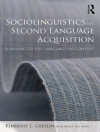Is linguistic revival beneficiary to the plight of newly emerging, peripheral or even ‘threatened’ cultures? Or is it a smokescreen that hides the vestiges of ethnocentric ideologies, which ultimately create a hegemonic relationship? This book takes a critical look at revival exercises of special historical and geopolitical significance, and argues that a critical and cautious approach to revival movements is necessary.The cases of Sinhala, Kazakh, Mongolian, Catalan, and even Hong Kong Cantonese show that it is not through linguistic revival, but rather through political representation and economic development, that the peoples in question achieve competitiveness and equality amongst their neighbors. On the other hand, linguistic revival in these and other contexts can, and has been, used to support nationalist or ethnocentric agendas, to the detriment of other groups, recreating the same dynamics that generated the argument for revival in the first place. This book argues that respect for linguistic and other diversity, multilingualism and multiculturalism, is not compatible with linguistic revival that mirrors nation-building and essentializing identity construction.
Umberto Ansaldo & Kara Fleming
Revivals, Nationalism, and Linguistic Discrimination [PDF ebook]
Threatening Languages
Revivals, Nationalism, and Linguistic Discrimination [PDF ebook]
Threatening Languages
قم بشراء هذا الكتاب الإلكتروني واحصل على كتاب آخر مجانًا!
لغة الإنجليزية ● شكل PDF ● صفحات 152 ● ISBN 9781317274087 ● الناشر Taylor and Francis ● نشرت 2019 ● للتحميل 3 مرات ● دقة EUR ● هوية شخصية 7312931 ● حماية النسخ Adobe DRM
يتطلب قارئ الكتاب الاليكتروني قادرة DRM












